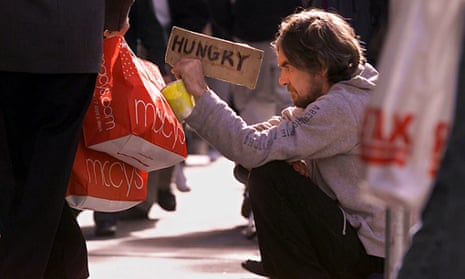Crowdsourcing is being used to help solve some of today’s most pressing social and environmental problems. Take education. A few years ago, Nokia and UNESCO teamed up with the Pearson Foundation to crowdsource ideas to use mobile phones for overcoming barriers to learning.
US non-profit Code for India, meanwhile, encourages coders to gather for intensive, day-long competitions to come up with development-focused apps. Described as “Peace Corps for geeks”, the idea is the brainchild of Silicon Valley entrepreneur Karl Mehta.
Earlier this year, BeMyApp, an events organiser for professional developers, organised something similar in San Francisco. Around 100 computer coders, designers and “idea generators” from across the Bay area took up an invitation to join a weekend-long “hackathon” in late January.
The idea behind the CloudCamp Social Good Hackathon event was simple: to come up with software applications that have a “social good impact and make a difference in people’s lives”.
The event, which was sponsored by tech companies Intel and HP, invited participants to brainstorm around four focus themes: environmental protection, community enhancement, educational improvement and better health and fitness. Participants came up with an initial pool of 31 ideas, which the competitors narrowed down to 15 by popular vote.
Up for grabs was a $5,000 and $4,000 cash prize for first and second place, respectively. Runners-up stood to win HP laptops and other in-kind rewards. The solutions had to be built using OpenStack, a cloud operating system, with the judges looking for excellence in execution, scalability, innovation and impact. Experts from BeMyApp were on hand throughout the weekend to give tips and advice to the competitors.
While the competition element of the event appealed to participants, the prizes themselves were “completely secondary”, according to Neil Mansilla, a software expert who attended the event. Instead, the over-riding motivation for most people was the chance to work on “meaningful projects”, he says.
Top prize went to a software platform for food banks to optimise the distribution of food called Feedjoy. The winning idea also included an “intelligent food donation bin” that could send real-time information to the food bank to further improve its efficiency.
Other ideas singled out by the judges included: Sign Up for Good, a software platform to facilitate volunteering; GiveShelter, a mobile app that helps you help the homeless; and ImagineYou, another mobile app, this time to help young women envision themselves as adults in a science-related profession.
Other recent examples of crowdsourcing for good include the CleanWeb Hackathon in New York, the Hackathon for Social Good, the HP Hackathon in India and the Social Innovation Hackathon organised by Peace Corps and the University of California, Berkeley.
Read more stories like this:
- Why rivals like PepsiCo, Coca Cola, Unilever and P&G are joining forces
- Business and academia join forces to tackle UK food security
- Advertisement feature: Unilever seeks innovative startups for sustainable living hack
The sustainable living hub is funded by Unilever. All content is editorially independent except for pieces labelled advertisement feature. Find out more here.
Join the community of sustainability professionals and experts. Become a GSB member to get more stories like this direct to your inbox

Comments (…)
Sign in or create your Guardian account to join the discussion